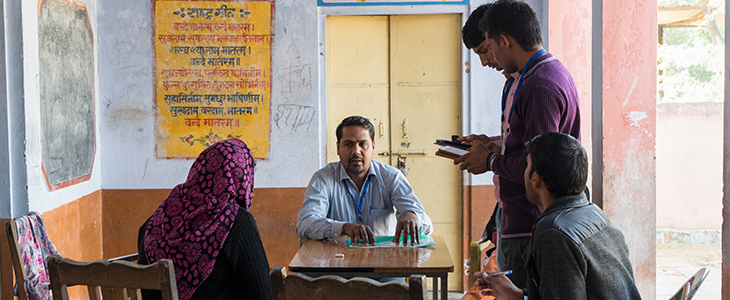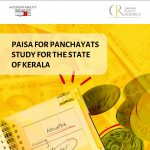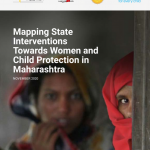
Can the IAS learn Bridging and Adaptive Leadership?
6 August 2015
First and foremost, the IAS needs to consciously work on curbing swollen heads within their tribe.
By all means, let there be a genuine celebration of the fact that people have cleared a tough examination to enter the hallowed service. However, following that, it is important to develop a sense of equanimity and not let pride turn into arrogance. One should not, either covertly or overtly, reinforce or support the belief that IAS officers are a cut above the rest, that they are successors to the ICS and that it ought to comprise of strong individuals aloof from the people, able to deliver justice with an even hand and therefore rule over people. This of course, cannot be achieved through delivering homilies on humility. What could be done is to avoid calling maverick officers from the field to boast about their exploits, during training sessions. The ‘effective SDO’ and ‘effective DC’ seminars in the IAS training academy at Mussoorie tend to do this. They are all about ‘I, me and myself’ and such displays of unverified examples of IAS effectiveness should not be paraded before fresh entrants.
Second, there is a need to build a genuine respect for democracy, within the IAS. There has to be a really good grounding in the concept and practice of democracy. Skills for implementing one or the other programme can be taught, but is important to build the attitude of respecting democracy. Bureaucrats have always inwardly tended to ignore the importance of democracy; yet there is nothing more valuable for a country struggling to erase years of poverty and discrimination. While the way that democracy is practiced in India has many grievous faults, there is a need to stop sneering and scoffing at it and actually plunge into a dispassionate study of what works and what does not, with democratic discourse being a non-negotiable. There are some very interesting new practices emerging in informed public democracy, such as deliberative democracy, which offers new opportunities in India and which can be adapted by the sensitive and caring civil servant. Building a positive attitude to democracy and to remain positive, whatever the provocation from the immediate environment might be, is an important aspect of building adaptive leadership.
Within the overall goal of building a respect for democracy, there has to be a good grounding in the theory and practice of decentralization. The LBSNAA does not earmark sufficient time for a deep study of decentralization. I say this with some pain and resignation, born out of experience.
In 2008 and 2009, when there was a collaboration between the LBSNAA and the Duke University in designing and conducting the Phase III programme for IAS officers of eight years of seniority, I was tasked to design and conduct a 4 day optional programme on decentralization. The programme was much appreciated and received 96% marking in the evaluation by participants, the highest for any optional programme. Yet, when the Duke University collaboration came to an end, the time allocated for decentralization was reduced to half a day. I still continued to deliver those half day lectures!
One of the reasons why IAS training programmes tend to ignore a study of decentraliastion is because they tend to equate the larger idea of decentralization with the nuts and bolts of running the Panchayat system. It is also due to the IAS’s un-wavering conviction that whatever else one might do for decentralisation, it should not topple or undermine the post of the district collector. Therefore, unfortunately, very few IAS officers have read contemporary literature on local government related institutional design, public finance, politics and democracy, in order to develop an objective understanding of how a multi-tiered government system is structured and how it runs. Generally IAS officers have a symptomatic appreciation of decentralization and give up hope on it based upon adverse personal experience, anecdotes and generalisation. Nothing could be further from reality. Decentralisation is a vast field of study. In its broadest sense, it encompasses federalism and indeed, is a study of inter-governmental relations. Knowing decentralization is as critical as understanding globalization.
In training civil servants on decentralization, they must have several opportunities to be exposed to the elected representatives of local governments, so that they cleanse their minds of the wrong stereotypical images they might carry. Civil servants would find it fascinating how local government representatives build their political capital by negotiate through a dysfunctional system full of institutional contradictions and the wrong incentives. Exposure to people on the other side will certainly build empathy and an attitude of respect, in the minds of civil servants. It will also hopefully wean them out of the steadfast belief in the District Collector being the sole benefactor of the District. They will hopefully realize that decentralization means something more than agencification of Local Governments to do their bidding. They will need to learn the tough lesson, that development might flower if they step out of the way. Above all, they might realize that promoting and supporting decentralization offers tremendous opportunity to develop and utilize valuable skills of adaptive leadership.
As a part of this training, the field assignment would also need to be reworked, so that civil servants, when they do their attachments with the Panchayats, do so not at the behest of District Collectors, but are placed with the Zila Parishad President for being deployed to the Panchayats. There are several Panchayats that have achieved extraordinary success in governance and civil servants should be sent to these, independent of the district collector, to gain a true understanding of the grassroots reality.





